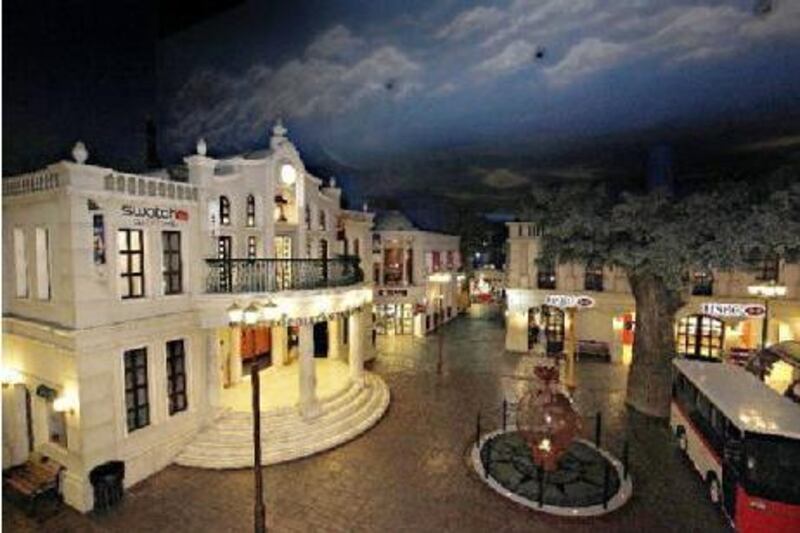The newest hotspot for retailers in Dubai is tiny. Literally child-sized.
While most merchants in the emirate have been cautious about expanding this year, the likes of Coca-Cola, General Motors, Hewlett-Packard (HP) and Lacnor milk and juices have recently set up shop in KidZania, an 80,000 square foot miniature city and theme park for children at Dubai Mall.
When kids enter the scaled-down city, they can dress up in real-life uniforms and role-play different careers, such as a mechanic, chef or surgeon. They can learn about bottling Coca-Cola in a new mini bottling plant, learn how to make a computer at HP's mini tech lab and they will be able to make their own Camaro at Chevrolet's soon-to-be opened car design centre.
Demand from retailers is picking up and KidZania expects to sign on about a dozen more in the next year or so, said Will Edwards, the "governor" or general manager at KidZania Dubai.
"There is a lot of interest now," he said. "In the last three or four months, there has been a lot of increased activity … in addition to the ones that just opened, there are several more that we'll announce."
There are 40 brands in the children's city, including a McDonald's restaurant, a Waitrose supermarket, an HSBC bank, a Swatch clock tower and a Swiss Arabian perfumes shop where kids can blend their own scents. Since KidZania opened at the beginning of this year, retailers have been branding the generic shops in the city, or building up new establishments.
Enlisting brands helps create a near real-life experience for the children, said Mr Edwards. "It's much more meaningful and realistic if the bank inside the city of KidZania is an HSBC branch that looks, feels, behaves just like the HSBC branch that their parents visit." Sponsors also provide a much-needed revenue stream, making up between 35 and 45 per cent of the average KidZania's income, said Mr Edwards.
"It's a relatively expensive proposition to build a city in the detail that we've done and it's expensive to operate," he said. And for retailers, it's an opportunity to present their wares to hundreds of thousands of young consumers in a more interactive way than radio ads or billboard signs, said Mr Edwards. "A 30-minute activity, it's a lot more meaningful from a marketing point of view and a lot more long lasting."
But what about the ethics of giving big brands such as McDonald's and Coca-Cola, which activists claim promote unhealthy eating habits, direct access to thousands of young, impressionable, consumers? Hermann Behrens, the chief executive of The Brand Union marketing agency, said that as a parent he was uncomfortable with such brands being overly marketed to children. "There is a risk if kids are being drawn to these … brands, [parents] will resist something like KidZania. These are considerations but ultimately they have to entertain the children."
Using identifiable brands keeps the children entertained more than showcasing an unknown brand, Mr Behrens said. Mr Edwards said KidZania's aim was making the city realistic and educating children in an entertaining way.
"Children like McDonald's, children like and identify with Coke," said Mr Edwards. "We want to make sure that we're a place that children like and want to come to."





